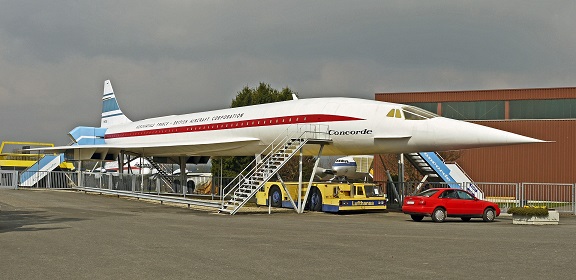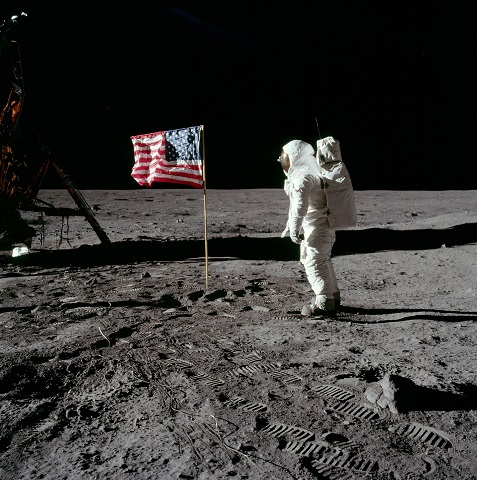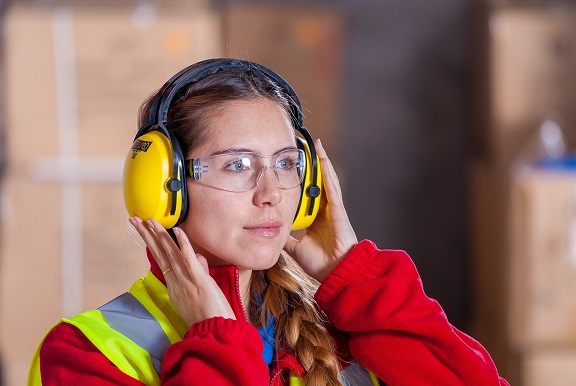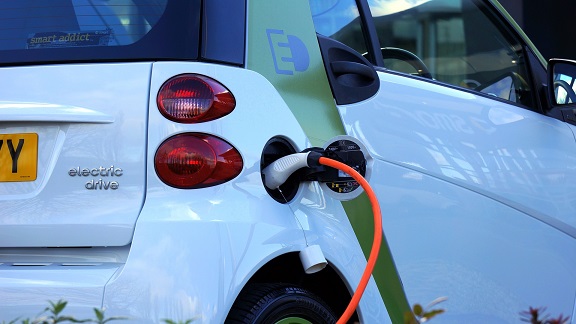Since Filtermist launched back in 1969, there have been numerous developments which have changed the face of the manufacturing and engineering industries, as well as the sectors we work most closely with (aerospace, automotive, food and beverage production, machine tool manufacture, medical device manufacture and surface finishing).

It’s fair to say the world has altered almost beyond recognition in the time since our company was born – so we’ve compiled 50 ways the world has changed since 1969 to mark our 50th anniversary:
1. In the 1960s, nearly 40 per cent of all UK workers were employed within manufacturing. This now stands at 8 per cent.
2. It was thought in the late 1960s that only large-scale production would survive and smaller businesses would die out, particularly within the automotive industry. This has definitely not happened and proves factors other than size determine the strength of a manufacturing firm.
3. The gross annual value-added output of the UK manufacturing sector was the equivalent of £120 billion 50 years ago, and has since risen to more than £160 billion per year.
4. Nowadays, women make up 20 per cent of those working in manufacturing, 17 per cent in the transportation and storage sectors, 11 per cent in construction and 22 per cent of all STEM workers. Advances such as new maternity rights and moves towards equal pay have helped more women access work since the 60s.
5. The numbers of apprentices actually declined during the 1970s, but thanks to a recent push they have once again increased in popularity – more than 3.8 million people started an apprenticeship between 2010/11 and 2017/18 in the UK.
6. Things have become a little more crowded – the world’s population has more than doubled from 3.6 billion in 1969 to 7.7 billion in 2019.
7. Computer aided design (CAD) was in its infancy in the late 60s, but is now used to design almost everything in the modern world - with cloud, web and mobile technology making it even easier to use. There are even moves to introduce voice controls and immersive 3D experiences.
8. Fiber optics and smoke detectors were being invented at the same time that Filtermist began, since then there have been countless inventions which have changed the world: barcodes, PCs, GPS, the internet, hybrid cars, the list is huge!.
9. Concorde flew for the first time in 1969, and the last time commercially in 2003.
10. While electric cars had been available since the 19th century, they had dramatically reduced in popularity in favour of the internal combustion engine by the 60s and 70s. Now thanks to a renewed focus on sustainability, electric, hybrid and low emission cars are once again gaining in popularity.

11. In 1969, a new six-axis robot (the Stanford arm) was created, with the next five decades seeing a huge increase in the number of robots used within manufacturing.
12. A UK legislation change which had a direct impact on the work of Filtermist was the introduction of the Control of Substances Hazardous to Health Regulations in 2002.
13. Despite Scotland and Wales becoming responsible for their own public health and environmental protection over the past few decades, health and safety at work has remained centrally regulated in Westminster.
14. Manufacturing output has steadily increased over the years with an average annual rise (between 1973 and 2007) of 2.9 per cent in Italy, 2.4 per cent in France, 2.2 per cent in Japan, 2.1 per cent in Germany and 2 per cent in the USA.
15. In 1973, the UK joined the European Economic Community (later the European Union). In 2016, a referendum was held which the ‘leave’ campaign won with 51.9 per cent of the votes, triggering the Brexit process.
16. More than 100 local district Factory Inspectorate offices were closed in 1977 in the UK to make way for 21 regional areas and 11 satellite offices.
17. The food and beverage manufacturing industry has grown exponentially over the years –this sector now accounts for around 1.5 million jobs in the US alone.
18. Around 465,000 million passenger air kilometres were clocked up annually 50 years ago – this figure has now increased to 5 trillion.
19. Developments such as radio frequency identification tags and production line monitoring and automation have allowed manufacturers to significantly boost their efficiency – and will continue to do so as the technologies constantly improve.
20. Labour Force Surveys from the 90s onward started showing a downward trend in the number of employees taking time off with work-related illnesses.

21. Lights out manufacturing (where humans have little or no input in the process) was touted as a way to minimise risks in the early 80s. US-based General Motors was one of the first companies to try to implement the idea but it never went fully ‘lights out’ (and few workplaces ever have).
22. The medical device industry has continued to expand and is now valued at $9.5b in the UK, $14.5b in France and $26b in Germany.
23. Filtermist launched in the same year as another important launch – the space mission which would see humans set foot on the moon for the first time. In total, more than 500 people have now gone into space including 12 who’ve stood on the moon.
24. Over the years, many have worried automation would ‘take people’s jobs’ – but it’s now thought the economic effect of the creation of new jobs in the technology sector outweighs any potential negative impact.
25. Petrol prices doubled in two years to 73p a gallon following the 1973 oil crisis. That cost has risen to an average of £6 in 2019.
26. The 1970s has been described as the second Industrial Revolution, owing to the fact many nationalised industries such as steel works, airlines and shipyards were privatised.
27. The first ever email was sent in 1971 – now it’s a primary method of communication for employers and employees across many industries and is a key factor in globalisation.
28. Air travel used to be much more luxurious – with bars, designed interiors and gourmet meals such as steak regularly served on board. Now airplanes are seen as a mode of transport rather than a destination in their own right!
29. In the USA today, workers in the manufacturing industry are producing almost 50 per cent more than they were two decades ago.
30. The technology to control factories digitally had only been in use since a decade before Filtermist was founded (1959), but use of digital control spread in the 70s when the cost of computer hardware fell.

31. More than three million workers in the UK alone now undertake regular shift work, a rise of 150,000 in just five years.
32. The assets (equipment and structures) of the UK manufacturing industry remained stable during the 80s and then grew by 0.8 per cent on average per year throughout the 90s and much of the 00s.
33. The Health and Safety at Work Act was introduced in 1974 to provide guidance for employers on how to protect their workers.
34. Experiments with self-driving cars have been taking place since the 1920s, but it wasn’t until the 80s that the first autonomous cars were created.
35. The first incarnation of the internet was invented in the 80s, now more than half of all businesses in the world have a website.
36. Half a century ago, it was expected that supersonic travel would start to dominate the aerospace industry over the next couple of decades– but the idea never really took off.
37. Automation is now estimated to be producing labour cost savings of 16 per cent in industrialised countries.
38. The world’s urban population has been growing – in 2007 the percentage of people living in cities and towns across the globe reached 50 per cent, and a decade later that figured had risen to 55 per cent.
39. From 1972, subsidies were given to UK manufacturers for machinery and buildings in the form of Regional Development Grants.
40. Not long after Filtermist launched, the world began experiencing ‘stagflation’ for the first time – high levels of inflation combined with high levels of unemployment.

41. In 1991, there were 370,000 fewer manufacturing jobs in London than there had been a decade before.
42. While manufacturers were already beginning to look at the use of robots half a century ago, by 2015 there were more than 1.6 million industrial robots in use across the globe.
43. Over 65 million people now have moderate or severe Chronic Obstructive Pulmonary Disease, a condition which can sometimes be caused by oil mist and dust in the workplace – this number has risen by 44.2 per cent between 1990 and 2015. and experts predict it will continue to rise over the next 50 years too as there is no known cure as yet.
44. Telford in Shropshire had just been designated as a New Town months before Filtermist launched in 1969, and now the town is home to the company’s £3m headquarters!
45. If you travelled by plane 50 years ago, you could expect a few empty seats around you. Now with airlines transporting more than 4 billion passengers annually, your plane’s likely to be completely full.
46. Since the 1990s, free trade agreements such as the one signed between China and Australia in 2015 have aimed to create more economic opportunities for material suppliers, exporters and manufacturers.
47. The Health and Safety Executive (HSE) is the UK’s governing body responsible for ensuring employers stick to the guidelines surrounding workplace safety – but it wasn’t in place when Filtermist launched, it was established after the 1974 Health and Safety at Work Act.
48. UK residents could expect to buy a house for an average of £4,640 in 1969 – those buying a property in 2019 now need to spend an average of almost £230,000.
49. 2016 was the first time in history that more than 70 million cars were manufactured in a single year.
50. Aside from the first Moon Landing, newsworthy events in 1969 included Richard Nixon being sworn in as the US President, and John Lennon and Yoko Ono getting married. In 2019, Brexit has dominated headlines.
Visit Filtermist’s YouTube channel to watch some of the company’s key milestones from the last 50 years.
References available on request.